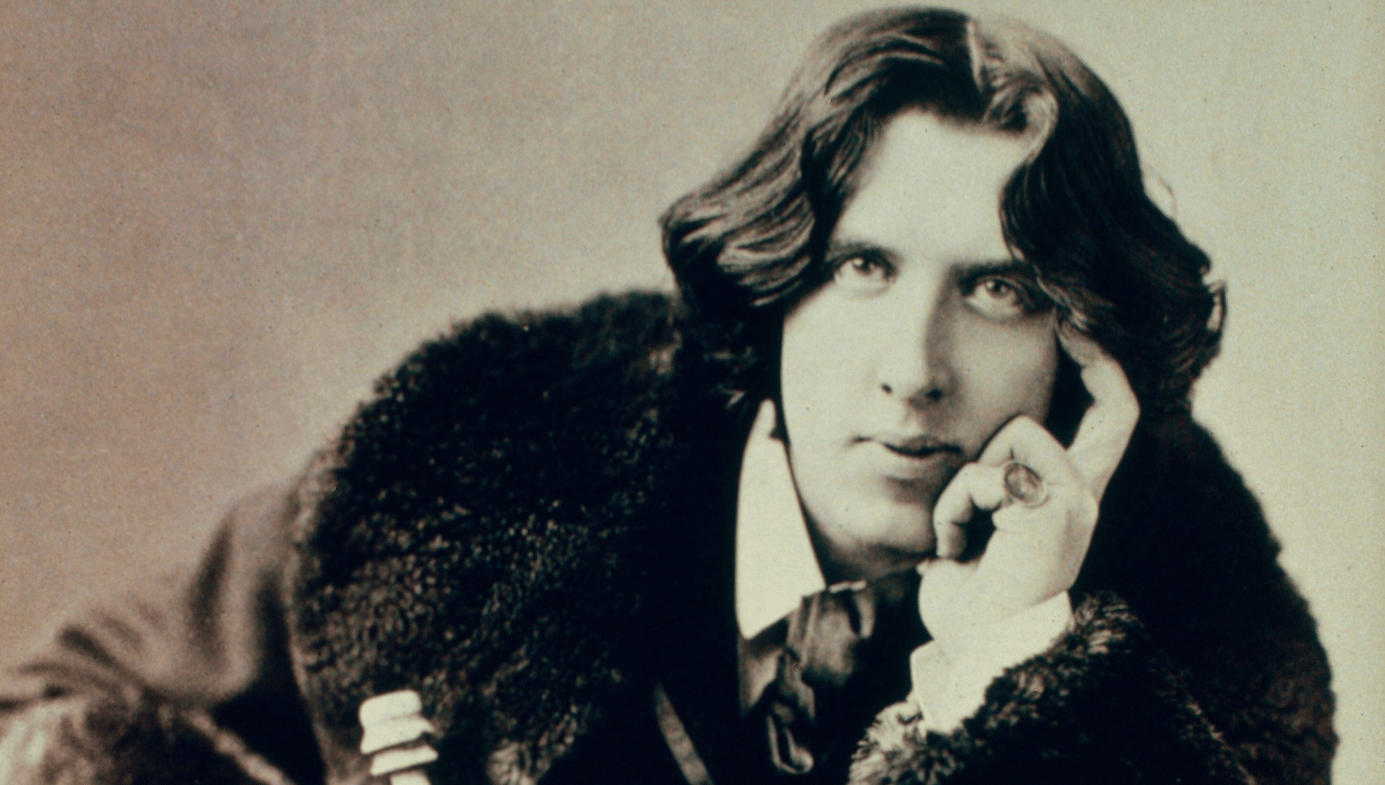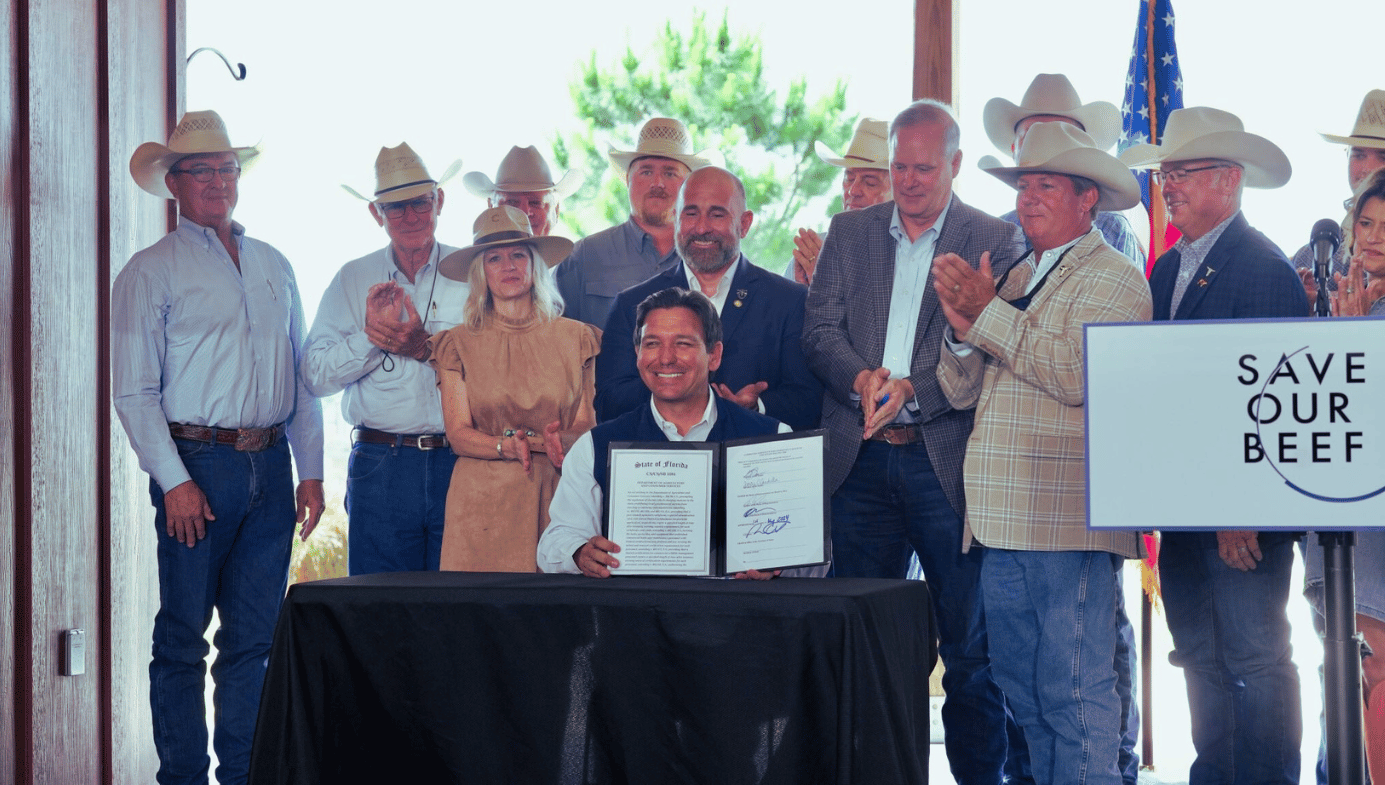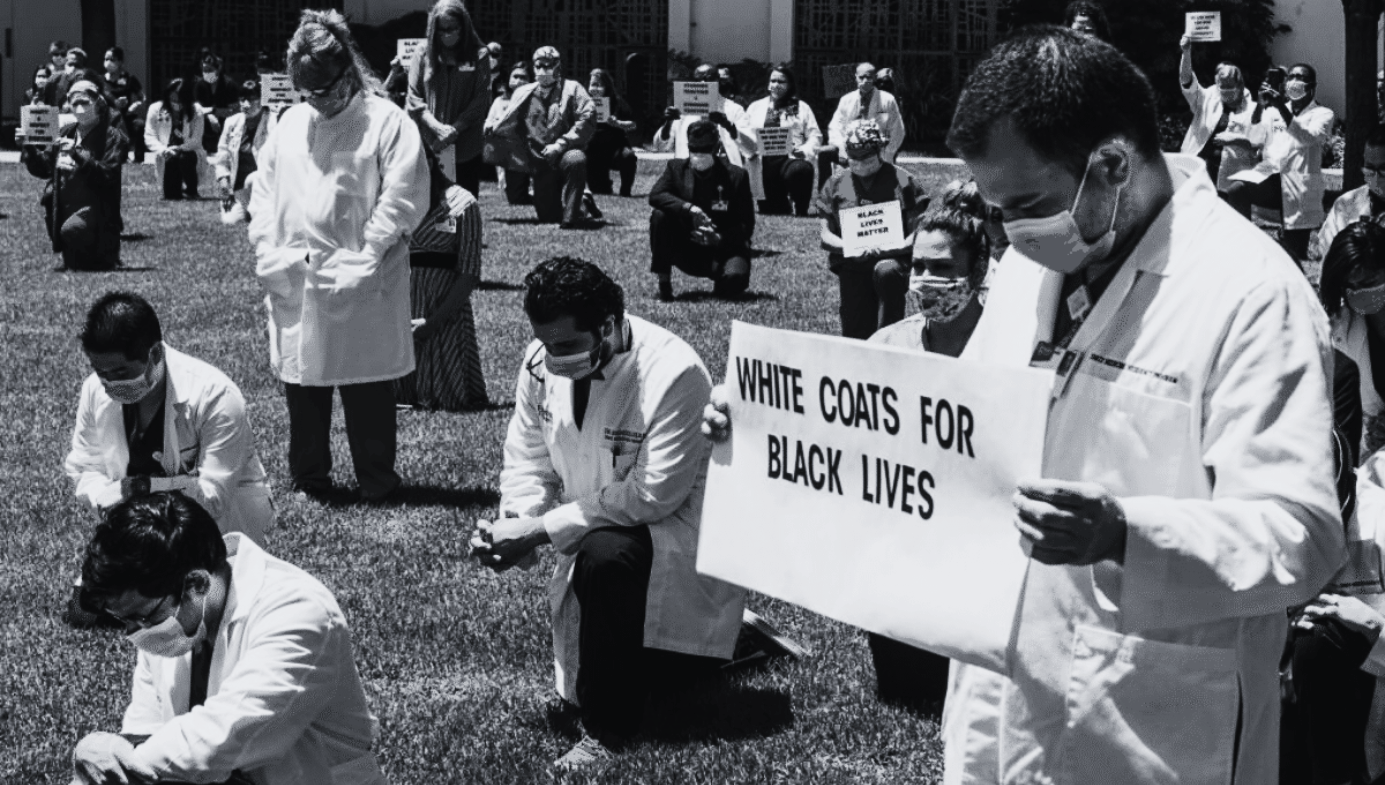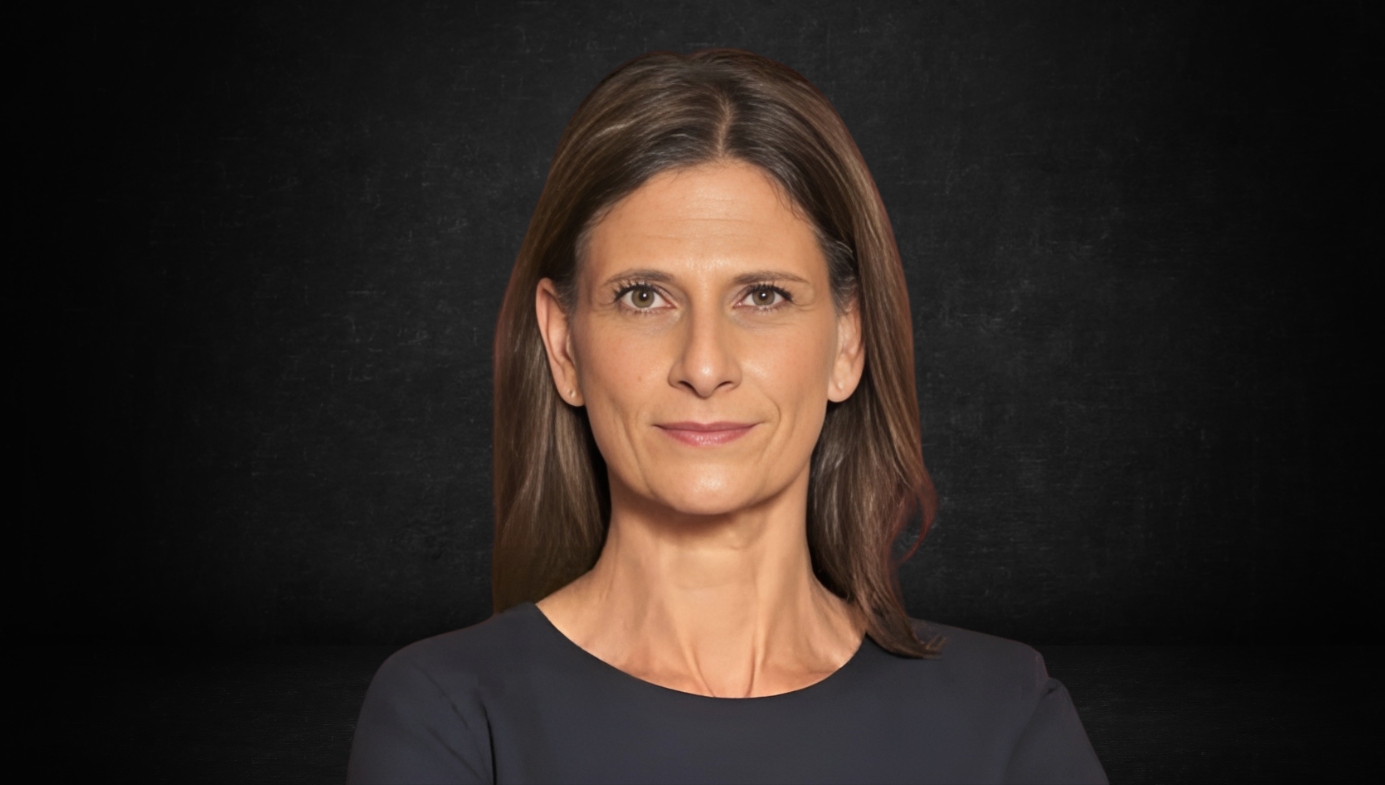Podcast #235: Coming to Terms with Autogynephilia
‘How I see things now is that I’m a self-attracted male person who prefers to be perceived by the rest of the world as a woman. That’s who I am.‘
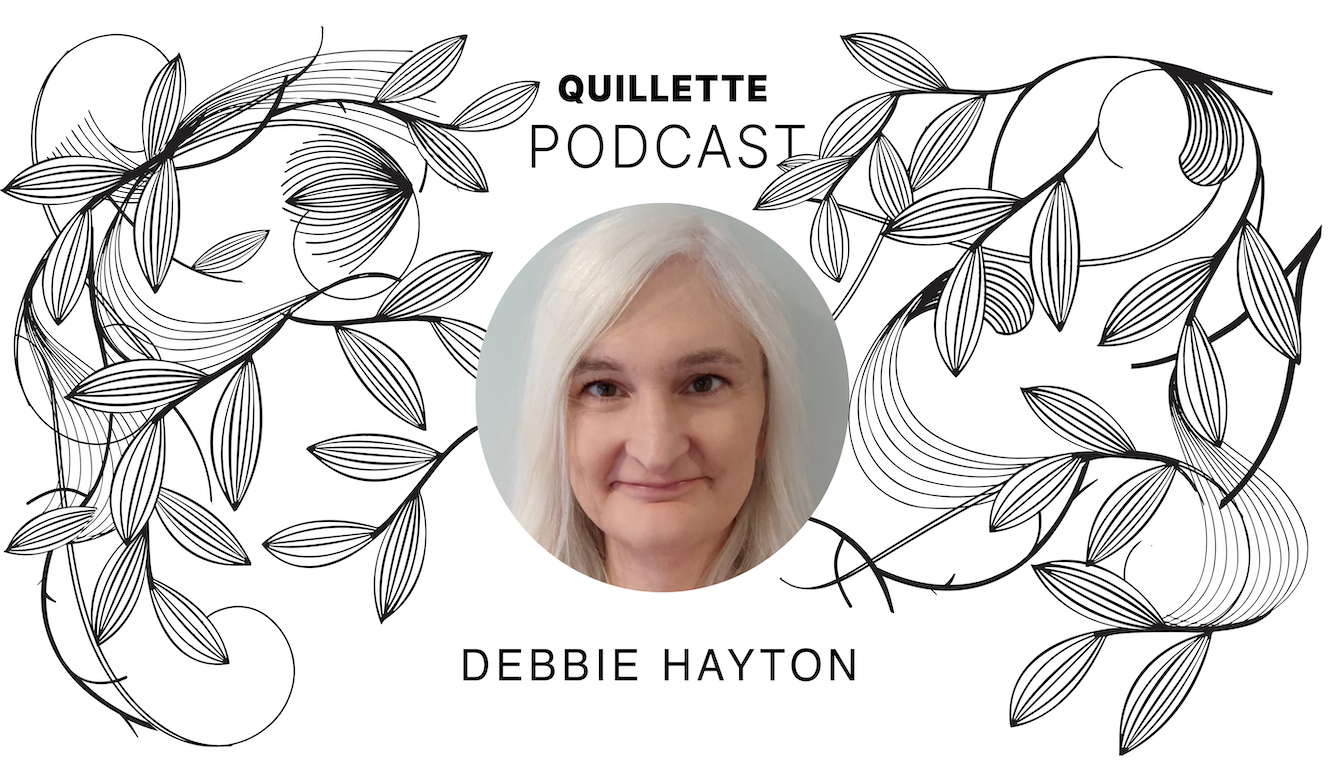
Welcome to the Quillette podcast. I’m your host, Jonathan Kay. This week, my guest is going to talk about a word that many of you might not have heard before: autogynephilia. It’s a word that describes the experience of a biological man who is sexually aroused by the thought of himself as a female—so much so that in some cases, an autogynophile will be moved to begin self-identifying as a trans woman, often in middle age.
Now, there are those who don’t like to talk about this word because its usage presumes that, at least in some cases, the root cause of being transgender is sexual. And, you’re not supposed to think that.
As many listeners will know, the doctrinaire progressive view is that sexuality and gender identity are completely separate. But my guest this week, English author and trade unionist Debbie Hayton, says that this separation simply doesn’t exist for many transgender individuals—certainly not for autogynophiles such as herself.
In Debbie’s new book, Transsexual Apostate: My Journey Back to Reality, she explains how she came to terms with her inwardly focused sexual attraction, and how that realization actually helped her deal with biological reality and her urge to present as a woman—as she now does.
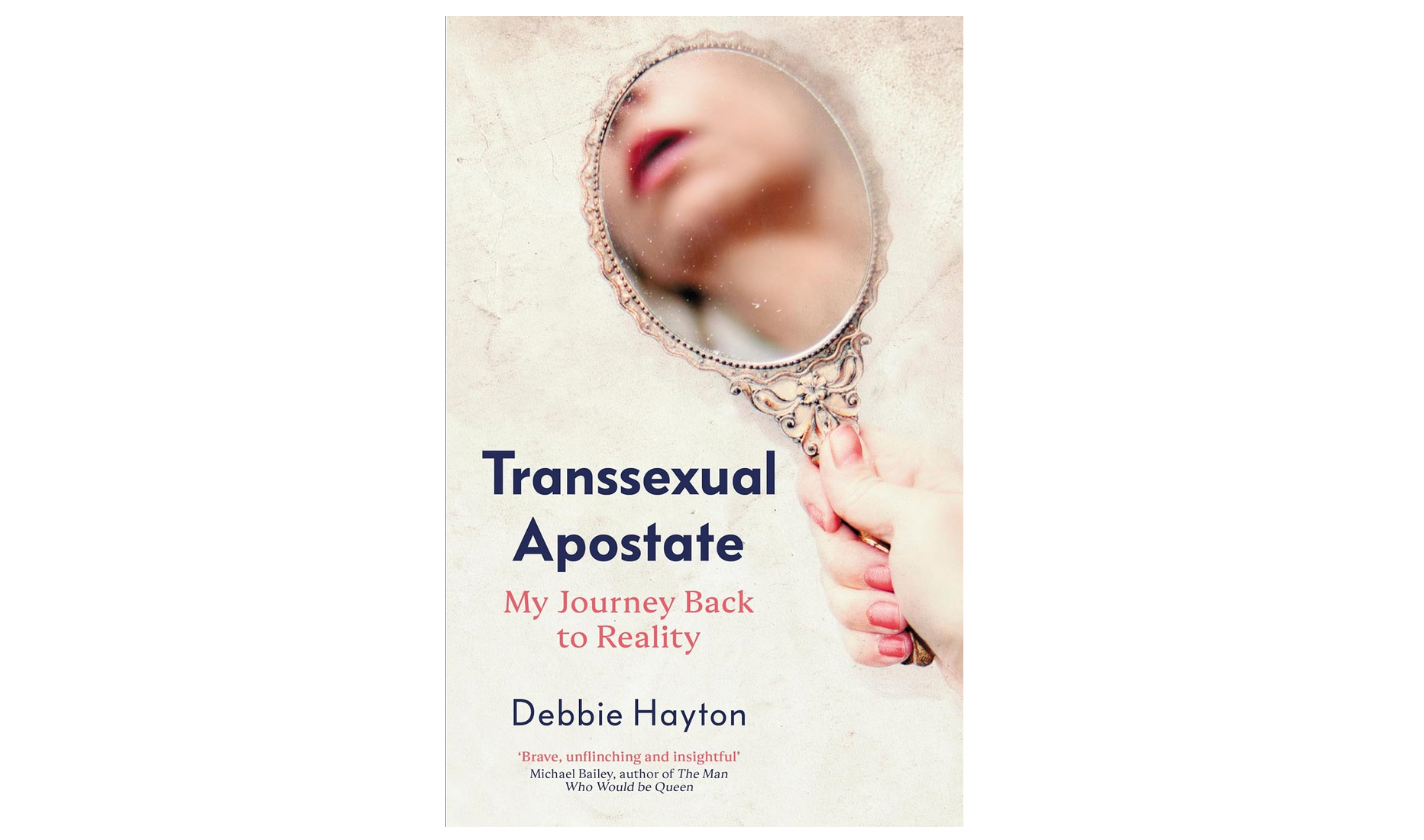
JK: Anybody who reads your book will be struck by your tendency to fall back on physics analogies. You have an especially interesting metaphor in regard to electrical circuits, which I guess you teach in high school. For those out there listening to our podcast, you might remember this from high school. There’s an energy source, which is usually denoted by two parallel lines of unequal length, and then you have a resistor in the circuit, which is represented by squiggly lines.
And the battery drives the resistor. And at one point in the book, you analogize autogynephilia to essentially a short circuit. It’s a circuit that has no resistor, and it kind of just drives this infinite current, which you analogize to an autogynephilic male who then expresses his or her sexuality in a hyper sexualized way that’s almost like a satire of feminine appearance. Am I getting that right?
DH: Yeah, you are. What I was looking at was modeling the male sex drive as the power source in the circuit. So men will have a relationship with a woman, and the man might want the female partner to do all sorts of things, and wear all sorts of clothes. And the woman in the relationship will say, “No, I’m uncomfortable with that. I’m not doing that.” That’s the resistance. But autogynephilia is a relationship with yourself. So what happens here is, there is no external load in the circuit. So this short circuit can drive big currents with little to resist that current, with somewhat spectacular [aesthetic] results at times, as we’ve seen.
JK: One example you give is meetings of couples that you attend with your wife [Stephanie], who wrote a lovely epilogue to your book. At these meetings, there will be trans identified biological men—which is to say, trans women—and they’ll bring their wives, who are conventionally, non-transgender women, And you note that sometimes the women are dressed in this very sensible way, because it’ll be cold outside, and they’ll be wearing slacks and a sweater or something, but sometimes the autogynephilic constituency in the room will be dressed more as like stereotypical pin-up women from like the Cold War period or something like that. Is that how [this kind of short circuit] sometimes expresses itself?
DH: Yeah, well, we’ve all seen this. As my wife would point out in those situations, you can pick out the trans women from the women quite easily because the [biological] women are dressed sensibly and the trans women are not.
JK: Shannon Thrace was a guest on this podcast about a year ago, and she wrote a wonderful book called 18 Months: A memoir of a Marriage Lost to Gender Identity. And in some ways, it’s kind of a companion volume to your book because she describes her husband—as he once was—who, in the middle of the relationship, discovered or announced that he was a trans woman.
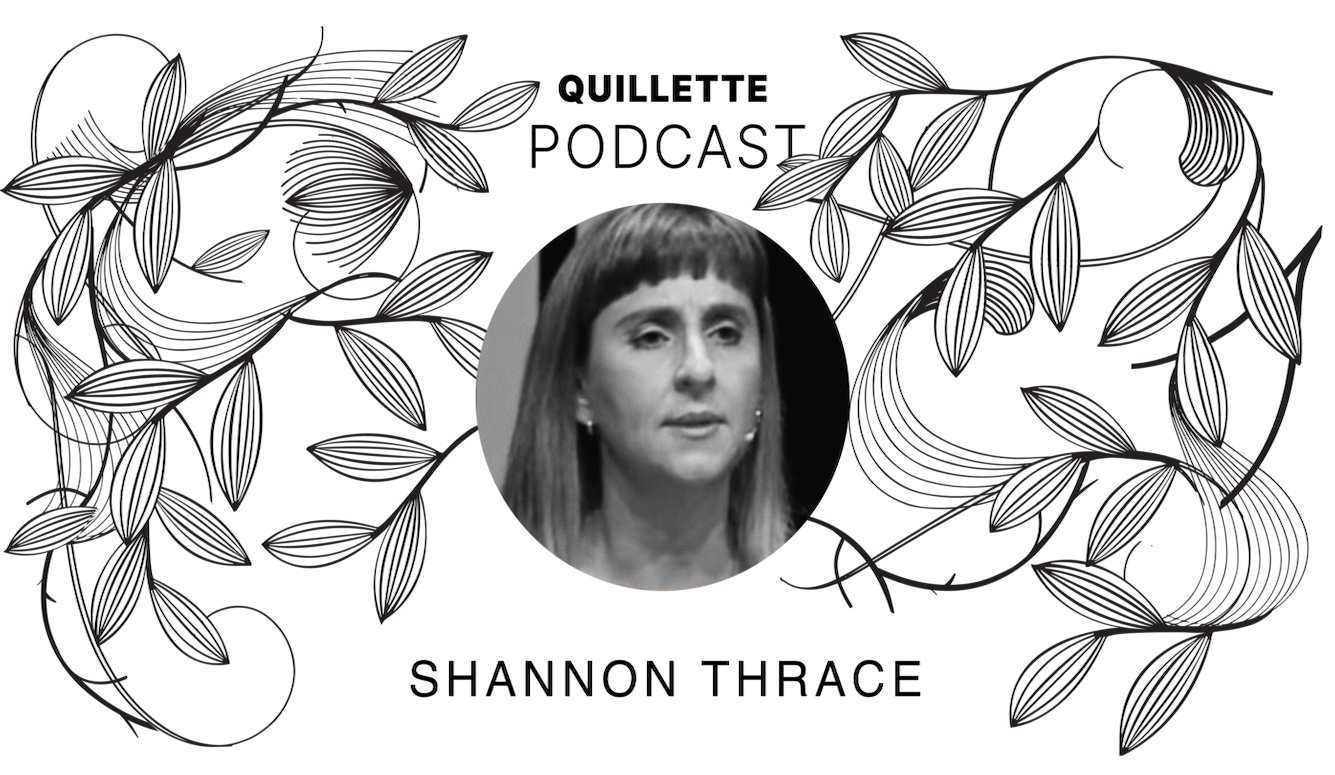
By Shannon’s account, which is the only account I have to go on, her husband lacked any kind of self awareness. He reinvented his past, and forced all of the changes in the relationship on her. And she wrote this very touching book about it. To read the two books side by side is quite fascinating because, again, by her description, with her husband, just everything was about him. He never got out of his narcissistic bubble. But in your case, by contrast, you seem to have a remarkable level of self awareness. Is this a quality you had before you began to think deeply about gender and how it relates to yourself?
DH: No. When I transitioned, I was as oblivious to other people as Shannon’s husband was. I was self-absorbed. I was self-focused all the time. Really, the only person I was thinking about was me. And I was following the lead of other trans people and not [my wife] Stephanie. And I think Stephanie mentions in the epilogue that the low point was after I transitioned, about four months in. And she basically said that all you are thinking about is yourself, and if you want to keep your family life, you need to start thinking about us.
[Until] that time, I was in exactly the same place as other transitioners, other memoirs I’ve read.
JK: You have one line here. I underlined it because I thought it was so evocative: “I have likened my desire to become the other sex to holding down a beach ball underwater.” And I think it’s important for people to read things like this if they want to be part of the gender debate, because sometimes you do talk to conservatives who dismiss the entire idea of gender dysphoria.
You describe it as a persistent and, I guess, debilitating psychological syndrome. It affected you every day, I’m guessing. It sounds like something that had an overpowering psychological effect on you. Is that right?
DH: Yes, it did. It was something that never went away. It was there from when I was very little.
It was something that I had to repress because it was something I just couldn’t tell anybody else. You mentioned “gender dysphoria.” I’m not convinced that we should be even using that term. I think there’s real conditions here. But the moment you apply the label gender dysphoria, and I mentioned this in the book, it’s almost as if all those different conditions are the same. And I don’t think they are. I don’t think there’s anything to connect, for example, middle aged men who are desperate to become women with teenage girls who are desperate to escape from becoming women, I think those are two different conditions, totally different. But because we apply the same term, gender dysphoria, it’s conflated the two. And I think that’s unfortunate.
JK: Your book steps readers through a typology, by which there are two types [of trans men]. There are men who are gay, and, for various reasons, essentially find it useful on a day to day level to simply present to the world as a woman, because it just makes things easier in terms of their relationships. And [for this group] there isn’t any complicated, introspective aspect to it. And then there’s the autogynephilic, biologically male, trans-identified individual whose identity is wrapped up, to some extent, in an attraction to the idea of himself as a woman. In this case, there’s a sexual expression to it.
If we zero in on this class of biologically male individual who has autogynephilia, could you describe what that feeling is like? Because even within the book, your description changes. It’s not just sexual, right? There’s something deeper than that.
DH: Yeah, it’s certainly not just sexual, because when we think of “sexual,” we think of that intense feeling. But a lot of what we do, in the way that we dress, the way that we interact with other people—men tend to interact one way and women tend to interact a different way. What happens with autogynophilia is that, because you are effectively attracted to the idea of yourself as a woman, even if this body is lamentably male, there’s a circle there that just can’t be squared.
What I felt was going on was a desperate urge for me to feminize my body to make it more feminine so it would be more acceptable to me—a body that I was more attracted to. Now these things are just so shameful. You can’t talk about this effectively.
You are attracted to yourself, you fancy yourself, and what man wants to admit to that?
JK: A lot of the people who are most supportive of gender affirmation are also supportive of every conceivable sexual orientation—except this one. This seems to be the one that you’re not allowed to talk about.
DH: Well, you’re not. It’s something that you keep very much to yourself. What you were saying about the other type of male transsexual, the homosexual type—by the time they actually transition, the job is already done. [Typically], everybody thought they were the opposite sex anyway, so it was just easier to go along with it.
Whereas for me, it was a huge issue to actually admit to this and come out [as autogynophilic]. And you’re in a position where there’s a choice between fixating on the born-in-the-wrong-body narrative, and you can get sympathy from other people for that. But to say that you are actually sexually attracted to your own body—and because you’re heterosexual, so you’re sexually attracted to female traits, you want to change that body to make it acceptable to you—it’s harder to sell that to the general public. So I guess that autogynephilic males who transition are desperate not to admit to this, to keep it quiet.
JK: The last thing you’re thinking about when you get dressed during the day, when you’re going to work, is to be sexually provocative. And yet, at the same time, if you’re dressing in a female way, you are still dressing in a way that is at least indirectly rooted in our sexual instincts about what looks male or what looks female. So the idea of sexuality doesn’t necessarily mean you’re just thinking about sex all the time. But it does create this spark that generates its own style of dress, its own mannerisms.
Just to be clear to listeners, an autogynephile isn’t somebody who’s obsessed with sex any more than any other individual. However, the sexual dynamo they have within them does lead to all sorts of other forms of personal expression that I guess, taken collectively, express themselves as what we think of as transgender, yes?.
DH: Yeah. When I dress for work, I wear clothes that are typical of what everybody else wears—clothes that I feel comfortable in. I need to wear clothes which are suitable for teaching, but also clothes that I feel comfortable in and that make me feel attractive and confident when relating to other people.
Before I transitioned, I’d take care to wear a clean shirt and a tie that perhaps matched. What I’m doing now when I’m dressing in stereotypically female clothing is exactly the same. It’s not different, except that I’m doing this in the way which is more typical of females.
JK: Getting back to that book by Shannon Thrace…When her spouse first came out as transgender, the phenomenon expressed itself in a very sexual way. He wanted to watch transgender porn together. He wanted to be [sexually] humiliated like a woman. There was clearly a deep sexual aspect to it. But then, as he transitioned, the sex just came out of [the relationship] completely. He was always neurotic and crying because he felt the world was transphobic. And I can see how somebody in that situation would say to you, “Why are you accusing me of being an autogynophile when sex is the last thing on my mind?”
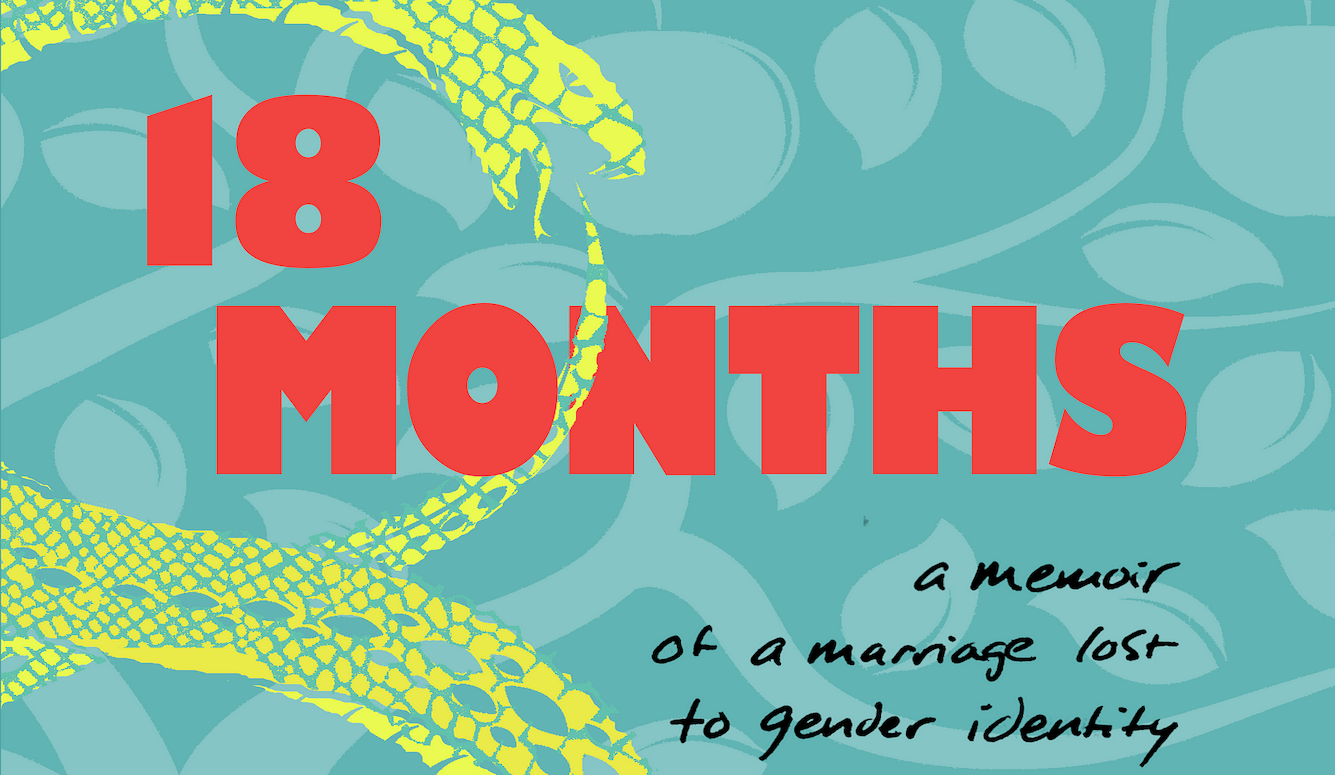
DH: We try to write sex out of [our lives] in the same way that other human beings, other adults, will try to write sex out of [their lives]. We all try to ignore the very obvious sexual dynamics in the interaction between human beings.
I think what happens, though, in autogynophiles is that short circuit. Whereas other men might have a mental image of what they would like their female partner to wear, and how [that partner] should act, in the case of the autogynophile, because the focus of [his] sexual interest is [his] own body, they’ve got their bodies as a [publicly visible] canvas. So what other men may plausibly deny, autogynophiles paint all over their bodies. I’ve referred to it, I think, in the book as a window into male sexuality.
JK: When we look at people who present themselves as activists for the transgender community, it’s not a scientifically accurate sample, because it tends to often be the people who are the most attention-seeking, the people who are most militant in their outlook.
And that’s true of all activist communities. However, that said, it’s difficult not to notice the fact that some of the people who gain the most attention in this space seem to be middle-aged male narcissists who seem to have an almost pathological regard for their own sexual and attention-seeking needs. They’re like, “Women, deal with this. I’m coming into your bathrooms.” It’s almost like they get off on bullying women. But there’s no link between autogynephilia and narcissism, right?
DH: I don’t know. But in some ways, we are describing here a pattern of male behavior. Not all narcissists who behave like this are autogynophiles. But they’re still engaging in narcissistic behavior where they put down women, speak over women, and put themselves first in every situation. If you add the bullying instinct to access to female spaces, that’s where you get a recipe for further abuse. It’s an open door to men who want to impose themselves on women.
It’s unclear how common autogynephilia is in the male population. Some suggestion has been that it’s two to three percent—similar to the prevalence of male homosexuality. But these are just guesses. The prevalence of narcissistic behavior and self-serving and self-seeking behavior in men is not insignificant. And you can imagine how the overlap there gives license for men to really behave appallingly to women, as we’ve seen.
JK: You have this line here, “I thought of myself as a woman, albeit with a trans history, and I assumed the right to use women’s spaces and take up their places. In my mind, I had transitioned and that was the end of the matter.” This is on page 42 of your book. That describes to me an utterly conventional description of activist slogans about how trans women should be treated. What was it that changed your mind about those slogans?
DH: It was when [no questions asked] legal self-ID became a thing [in UK]. There was a debate in Parliament toward the end of 2016 about it. This was supposed to be the liberation for transgender people. No medical tests. No one had to countersign it. If you decide you’re a woman, then you’re a woman, with all the rights of women. Until then, there’d been gatekeeping involved.
I worked out that this gatekeeping was important, not only to protect people from making mistakes, but also to give the impression that there was something real here. And people who’ve been through this process had been through checks; they’d been through some gatekeeping. There was something to divide you from the “weekend princesses.”
As I explained [in the book], I met for pizza with another transsexual person. And we looked at each other and said, they can’t be serious about this. It’s this impression of gatekeeping that gives us the credibility to do what we do. And they’re going to take this away from us.
And what I wrote at the time on my blog, and this was before I started writing pieces in the press, I said something along the lines of, if the state takes away the official gatekeeping, then groups of women will come up with unofficial and informal gatekeeping methods, which will be a lot less sympathetic to transsexuals than the legal gatekeeping, which we’ve had hitherto.
So I saw that as an own goal. I wrote to members of parliament and said, this is not a good idea. And nobody replied to me, nobody responded. And it was a situation I was just feeling more and more frustrated with. So I started campaigning quite heavily against [a policy based only on self-identification].
And then, into 2017, there were women who were protecting their own rights and the importance of gatekeeping. And I found common purpose with those women. I started listening to their arguments.
Up until that point, I’d seen myself as a woman, essentially, and I always wanted to protect those boundaries to keep out the weekend princesses. I talked to these women’s groups. A woman said to me, “Debbie, we’ve got no problems with you. We know you. But if we let you in, then it’s more difficult for us to shut the door on anybody else, since they can come along and say, ‘You’ve let Debbie in, so why not me?’”
So it’s at that point, I thought, yes, there’s a situation here. So I stopped using women’s spaces at that point. I certainly wouldn’t take up any [women’s] places on boards or committees or in politics. I wouldn’t do that.
JK: You just backended into what I would call a courtesy conundrum that a lot of us have in terms of using pronouns. If somebody who’s biologically male has spent years living life as a female and maybe there’s been surgical interventions, and this is somebody I know and trust, of course I will use female pronouns. What I worry about is if those monosyllables become a legitimizing force for people who just want access to female prisons or female sports leagues or female locker rooms in a cynical way. Human beings are cynical creatures and there’s no reason to expect that they’re not going to be cynical about this issue in the same way. So I end up in this paradoxical situation where I will use correct pronouns for everybody except those who angrily demand that I use correct pronouns, because they’re often the people who are the most insecure and militant, and in some cases cynical about it.
DH: When it comes to pronouns in real life, they tend to be descriptive. If somebody were describing me in my professional life or in my social life with male pronouns, it would lead to absurdities. That’s because there’s a body involved, and I’ve made changes to my body so that it more closely resembles a female body than a male body. So in real life, we use pronouns to describe the image that we see. But the political debate’s been happening online is one that’s separate from the reality of our bodies. For young people, during COVID especially, the vast majority of their interaction with other human beings outside their family was online. And those relationships are very, very different to real relationships where bodies are involved.
JK: There’s a telling story in your book. You were on the subway or maybe a bus, and an older woman says to you, “Are you one of those blokes?” And I’d appreciate if you tell that story, because it ends in a very interesting way, and in a way that I think captures the good intentions of a lot of people on this issue [when they’re not online].
DH: I think it’s important to assume good faith. So, I was on the underground in London, and a woman who is a good 20 centimeters shorter than me comes up to me, uh, she’s laden down with groceries, and she says, “Are you one of those blokes?”
And what goes through your mind is, “What do you do with this?” So I said, “Why, yes. So I am.” And she said, “You are very convincing.” And I said, “Well, clearly not convincing enough.” And she said, “Good on you,” and walked off. Now what that said to me was that this was not transphobia. This was curiosity.
Now, if she’d approached somebody else who was in the same position as me, that could have provoked a complaint to the police. The place was full of CCTV cameras. She would have been identified. She may have had a visit from police officers the next day.
JK: I don’t know if you’ve seen it, but a couple years ago, there was this viral video of somebody who’s clearly biologically male who was in some kind of retail store and there was some teenage clerk who said, “Oh, hello sir,” or something like that…
DH: Yeah, I know the video. He got more and more upset. I could have done that sort of thing, but there’s no point in doing that. And, you know, people do call me “sir”—especially on the telephone. And sometimes, you just go with it, because it’s easier. I’m not going to get upset about those things.
JK: However, there’s a chunk in your book where you talk about why it’s so psychologically explosive for some trans-identified individuals to not only convince themselves that they’re actually women, but to have the entire world complicit in that, and how even one stray piece of negative feedback can send them into a psychological spiral.
DH: Your sense of being relies on the fact that you are a woman. But as human beings, we are social and so we interact with others. And so it’s not enough for you to believe that you’re a woman. You need to believe that everybody else believes it as well. And so just one person looking and saying, “Well, I don’t believe it”—that breaks the illusion. And I’m speaking from personal experience, because I was there. This was the reason I transitioned. I thought I was some kind of woman. And somebody else saying, “I don’t think you are” cut me through to the very core.
JK: The story you just told, where the woman says, “Are you one of those blokes?” and you just treated it at arm’s length—the process of you getting to that stage of acceptance, was that the same process as coming to terms with the idea of autogynephilia, or were those two processes separate?
DH: It was [separate]. It followed my coming to terms with autogynephilia, because that then enabled me to understand myself in terms of my sex drive and my sexuality. Bizarrely, it gave me more confidence in who I am.
JK: Is it possible that once you understood how your mind worked, it felt less fragile?
DH: Yeah, and how I see things now is that I’m a [self-attracted] male person who prefers to be perceived by the rest of the world as a woman. That’s who I am. And if other people say, “We don’t believe you,” well, it doesn’t matter. I’m not in a position where I depend on other people’s feelings.
If I say, “My preference is to be perceived as a woman, so I work hard in order to be perceived in that way,” and somebody else says, “We don’t believe you,” you say, “Well, believe what you like. It doesn’t bother me.” Whereas when I was trying to convince myself that I really was a woman, when others people didn’t believe me, that cracked the illusion. So I would say that my perception of who I am is now based upon more concrete foundations. The subtitle of the book is My Journey Back to Reality.
JK: I promises that this is the last time I’m going to bring up Shannon Thrace’s book, but there was this episode she described where she and her spouse, they were in a mall and a waiter or something said, “Oh, would you like me to clear your plate, sir?” Something like that. The spouse, I think, was crying for days over that episode. By the way, this spouse was somebody who had been a real do-it-yourself type—a very robust, rugged individual, and in fact this is what was the basis of Shannon’s attraction toward this person originally.
This is something I’ve observed that with some of this ideology: there is a programmed sense of vulnerability. You’re encouraged to be vulnerable because the idea is that if everybody in the universe doesn’t “affirm” you enthusiastically, it can drive you to suicide. You see a lot of rhetoric like this.
DH: What we’re doing is we’re victimizing people. Adults are victimizing themselves, and we’re victimizing children. We’re turning them into victims because their sense of well being is determined by how other people think about them or talk about them. And they are incredibly vulnerable as such.
What I’ve observed is that when I’m out in a restaurant with a man, especially a man who’s taller than me, I will routinely get taken for a woman. Because this is what you’re expecting. You see an opposite-sex couple there.
But if I’m out with a woman, people will read through me. So if I’m out for a meal with my wife, for example, I’m the one who’s taking the orders, relaying the orders, paying the check at the end, because this is the stereotypically male role. I’ll get read as being a man because of that.
Sometimes I can do experiments to see what I have to do to get clocked as a man. And what do I have to do to get clocked as a woman? So I’m sometimes playing intellectual games out in real life.
JK: You’ve mentioned how you reject the very idea of gender identity. But that metaphorical beach ball that you were trying to push under the surface of the water of your personality—wasn’t that beach ball your gender identity?
DH: At the time, I would have perhaps called it gender identity. But looking back now, it wasn’t. I think there are two sides to the sexual dynamic. There’s how we’re attracted to other people, and how we signal our attractiveness to other people. Homosexuality is a variation on the former, and transsexualism is a variation on the latter. So you can explain the whole thing without introducing the concept of gender identity.
Unfortunately, what we’ve tried to do with gender identity and gender dysphoria is to divorce this from our sexuality. It’s not surprising to me now that this preceded the big push on children. Because if we say that this is all bound up with our sexuality, well then it becomes something that only adults can do. But because we’ve divorced gender identity, as we call it, and gender dysphoria from sexuality, then it suddenly becomes something that children can do and children are encouraged to do.
The impact on children is, I think, the biggest issue of all here. We talked about women’s rights before. Now, I’m not a woman, but I can appreciate how women’s rights have been compromised by all this. But what worries me more is the impact on kids. Women are reclaiming their rights. But when a child’s body and physical development has been permanently altered, they can’t get that back.
JK: In your case, you had several children before you transitioned. You know, it’d be a very different story if surgeons had transitioned you before you had an opportunity to do that.
DH: That’s something that does trouble me. If I’d been growing up now, I would have been desperate for the hormones and the surgeries. But my life wouldn’t have been any better for it.
After my wife and I had three children, we decided we didn’t want any more children, so I had a vasectomy. So at age 34, the health service signed off on that. But if I’d gone in as a 19-year-old and asked for a vasectomy because I didn’t think I wanted children, they wouldn’t have given me one.
But when it comes to gender surgeries, which are far more profound, we haven’t been making that distinction at all. And I think we should be viewing this in the context of other medical treatments, not as something that gets put to one side as something separate.
JK: Throughout your book, there are scattered references to other people who maybe have come to terms with their autogynephilia. However, is there any kind of community for people like you? I mean, do you have your own letter on the LGBT alphabet? Is there an autogynephile section of the pride parade? I’m guessing there isn’t.
DH: There isn’t. It’s the one section of society that is not welcome at pride, I think. But I’ve had enough of these “communities.”
JK: This book might change things, though. I mean, maybe you’re going to become like the I Am Jazz of autogynophiles.
DH: It’s interesting. I’ve had private messages that I get through my blog. The most common demographic are men who have twigged the fact that they’re probably an autogynephile, but are trying to avoid transitioning they’ve seen that the impact it has on family life can be devastating. But the problem with autogynephilia is that the more you talk about it, the more likely you are to become overwhelmed by it.
My own personal experience was being able to hold this beach ball down until I had coffee with a transitioner, a male Transitioner, another teacher, actually, of my age, who had been through this process just before me. And after meeting that person, the sense of jealousy and envy in me that this person was able to do this and I couldn’t…it just really pushed me over the edge.
Imagine there were some medical treatment that could extend your lifespan to a thousand years. And it was available, and people were starting to get it. That’s how I felt with transition.
JK: Not everybody listening to this podcast has thought about their gender identity to such extent that that’s a thing, or has experienced gender dysphoria. But I think everybody listening to this podcast can probably remember a time when they were in an important relationship, where they were acting in a way that was self absorbed, and they later realized that the demands they were making on their loved ones were either unreasonable or, at the very least, should have been negotiated, and shouldn’t have been treated as absolute proclamations.
Often in these situations, you go to a therapist. But when it comes to this issue, the therapeutic community essentially encourages the narcissism of one party and discourages the kind of give and take that’s necessary in any relationship. You and your wife seem to have maybe eventually stumbled on a process of give and take. But was there anybody who helped you do that?
DH: No, we worked that out ourselves, I guess. I did have a therapist who was neutral at the beginning and tried talking me through the various scenarios. When I told her that I needed to transition, she picked up a chair and put it in the doorway. And she said that through that doorway is transition, and we were going to block it with that chair, and let’s talk about other alternatives of things you can do. And one day, I got up, picked the chair up out of the doorway and moved it. And she said, right, okay, then we’ll talk about transition.
While I was lost in a world of my own around transition, other people were talking to my wife, and she was getting different messages from different people. In some cases, people told her she is really so lucky to be married to somebody so special, which she said was unhelpful. But she was also getting comments from people who said that what’s going on here is so bad and so wicked that “I feel I can’t relate to you at the moment because you’re actually colluding with this by not divorcing him.” Which was also not helpful. But she did have a number of friends who were rational, reasonable, and balanced in this, who were there to support her.
JK: You two are church-goers. I’m wondering how that played into this.
DH: Church was a community where we found people who saw us as more than this couple where one was transitioning. They’d known us a long time, and we had kids, the children were going there. So they knew us as a family.
It was certainly a challenge for the church in how to actually manage this and cope with this—because I wasn’t self aware then as I am now. And I look back in horror at the things I was saying. And people acted gracefully, really, and sort of grimaced and thought, “Debbie will get over it in time, I’m sure.” And I did. So I relied on that from other people.
JK: If you could kind of snap your fingers, and go back in time, and not move that chair, and avoid transitioning, would you have revisited that choice?
DH: I’ve said in the book that if I knew in 2012 what I know now, I wouldn’t have transitioned. I only transitioned because I thought I was some kind of woman. Now I know I’m not some kind of woman. I do like having my hair long. I do like wearing skirts and I have freedom to do that. But I didn’t find my true self as a woman. What transition did was enable me to discover myself as who I am, an autogynephilic male whose sex drive is partially, at least, reflected back on myself.
And that gives me a kind of satisfaction that I finally understand myself. That three-year-old boy that I describe at the start of the book who struggled with these issues—he had no idea what was going on. Now I’ve worked it out, and that’s satisfying. If I hadn’t transitioned, I probably would never have worked it out. So, in some very selfish way, transitioning was worthwhile.




